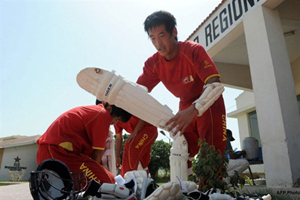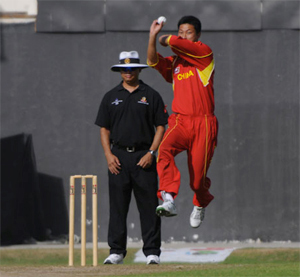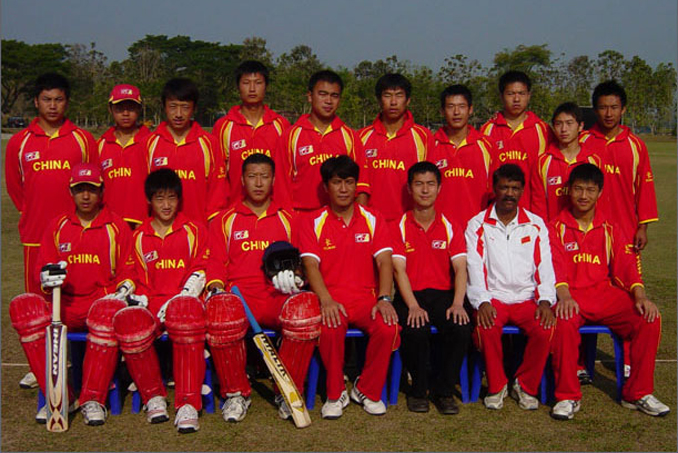
Written by: Jalal Hussain
Posted on: January 21, 2014 |  | 中文
| 中文
“You know there are a lot of problems in the world today, there is complex fighting everywhere, the solution of all the problems is cricket!” These are the words of Taj Malik, the former coach of the Afghanistan cricket team. Malik’s statement may come across as rather simplistic but he speaks from experience. Cricket has had far reaching successin shaping a positive psyche for the people of war-torn Afghanistan. It has brought the country and its people together to an extraordinary point, where the Taliban, an Islamist militant group that once ruled large parts of the country, wished the Afghanistan Cricket team well forits match against Pakistan in Abu Dhabi. The gesturewas significant,coming across as anendorsement ofthe Western game as kosher. Traditionally, it would have been unimaginable to expect the Taliban to validate any activity perceived to have imperialist associations.
 |
The geopolitical impact of cricket is undeniable. It cuts through boundaries of bigotry, hatred and prejudice. I had the opportunity to witness a poignant moment at Gaddafi Stadium in Lahore during the India-Pakistan series of 2004. Indian and Pakistani fans tied their country’s flags together and raced in unison aroundthe stands to thunderous applause. It was impossible to avoid an overpoweringfeeling of being united: people from two countriesriven with a bloodied pastand enmity, pushed stereotypes aside to watch the game as one.
The impact of cricket in other countries is also noteworthy. On the eve of the Champions Trophy final in 2004, a Caribbean fan whose life had been overturned due to the widespread damage caused by Hurricane Ivan, called theWest Indies team manager Tony Howard and said: "My house has been blown down, but if you guys win for me tomorrow, it really doesn't matter. I'd be the happiest woman in the world." After such words, victory was a mere formality for the West Indies team.
 |
In the context of Pakistan-India relations, cricket has always played a significant role in bringing the two nuclear-armed nations together. The term ‘cricket diplomacy’ was coined after the leaders of India and Pakistan used cricket matches between their countries to thaw relations. Pakistan’s Foreign Minister, Hina Rabbani Khar, recently called for cricketing ties between Pakistan and India to be resumed, saying, “Cricket plays a huge role in bringing the people of Pakistan and India together. We have always believed in cricket diplomacy. Pakistan pushes for cricket ties with every country, especially with India”.
Cricket is one of Pakistan’s strongest forms of soft power. The country has been astute to realize the strength of this particular sportin building bridges between nations, and its standing in the cricket world has allowedit to export the game to other countries.
The Pakistan Cricket Board has made the laudabledecision to assist China in building a cricket team. China’s first recorded match was played in 1858, in Shanghai. Until recently,only expatriates played the sport. This, however, changed six years ago when the country was given affiliate membership of the International Cricket Council in an attempt to expand the game globally. Today, hundreds of Chinese educational institutions boastcricket pitcheson their premises and the country has set an ambitious target of achieving Test status by 2020.China is already a part of cricketing lexicon, with ‘Chinaman’ being the term used to describe left arm unorthodox spinners.
Pakistani cricket legend Javed Miandad is China’s Lahore-based ‘Ambassador of Cricket’. Miandad, one of the most credible voices in the cricketing world, says that China could be the next big thing in this particular arena: “The Chinese are very quick learners. Their complete devotion to mastering anything is simply awesome.
 |
The resilience of the game and those who play it can be gauged from the fact that only 3 months after the gruesome attack on the Sri Lankan cricket team in Lahore, in 2009, Pakistan and Sri Lanka, the two teams directly affected by the terrorist attacks, reached the finals of the T20 World Cup that year. The message sent across by the cricketing world was: the game trumps your will to kill.
Sports are the only truly global language we have. Not only isitthe most effective conduit for spreading a message of peace, it also brings joy in the face of adversity to billions around the globe and is a relationship-building instrument between countries. It is befitting that Pakistan is now using cricket as a tool to bring peace and harmony in Asia. Who knows, cricket might be the catalyst to turn the tide and bring the leaders of China, India and Pakistan on the same platform to mend relations. Though all bets are off if China beats India and Pakistan to win the 2023 World Cup!
You may also like: